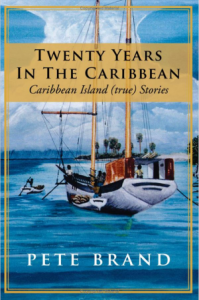 In Dominica the sobriquet for a person who lived way out in the country, or in a very small village was “Country Boukie”.
In Dominica the sobriquet for a person who lived way out in the country, or in a very small village was “Country Boukie”.
Most nations of the world have laws against the hiring of foreigners unless certain rules protecting the employment opportunities of the country’s nationals are observed. The United States has such laws and, so too, has the Commonwealth of Dominica. The bureaucratic minefield one had to traverse in order to hire other than nationals is intricately constructed. Compliance simply was not worth it. We considered ourselves “Guests in the house,” rather than just expatriates, and we considered confrontation impolite and unbecoming of a guest. As a result we hired locally and trained as we went.
Celestine St. Hilaire was a bright young country boukie from Fond St. John, a small, rural village on the southern end of the island. We had felt that he would be a good employee when we met him and our confidence proved well founded.
In the beginning of his employment Celestine required our patience, though his enthusiasm and willingness more than compensated.
In Celestine’s village there was no telephone or electricity except for the occasional special purpose generator. When he came to work for us he brought his belongings in a small bag and settled in to live in the helps’ quarters over the generator room.
Our home, the Tree House, was on a ridge perhaps four stories above the small parking lot at the front of the hotel. From our living room we could see arrivals and departures at the main entrance and monitor the activities around the swimming pool, and the guests’ rooms.
We had the equivalent of a simplified old PBX telephone exchange in our living room and since we had no walls on that room we could sit at the exchange and ring down to the hotel when we saw a taxi arrive or a guest who needed help.
Someone had to be in or near the hotel kitchen at all times so that guests could be accommodated if they wished between-meals room service. Often visitors came up from a cruise ship or a visiting yacht and wanted more than bar drinks.
We received a call from the secretary of the Tourist Board informing us that a travel writer had requested a visit to our hotel and that a member of the board would be driving him up to us.
Dominica was noted for its limes. The Florida Key Lime came originally from Dominica and L. Rose and Co. maintained a large lime processing plant in Roseau. Soon after its formulation by Lochland Rose, Rose’s limejuice was found to prevent scurvy and was later responsible for the nickname “Limey” for British sailors. It was the world’s first non-alcoholic fruit cordial.
Ripe yellow limes were required for processing in Rose’s factory. Home recipes usually require either ripe limes or green limes but in all other table and tipple use, green limes are preferred.
For this reason Margie called down to the hotel to check with the kitchen on the supply of green limes. We expected to entertain the visitor at our house and we had none.
Celestine answered the phone in the kitchen. At this time he had only been in our employ a short while.
“Hello?” an obviously uncomfortable voice answered.
“Who is this?” Margie asked. She knew she had rung the kitchen, but she did not recognize Celestine’s timid little voice.
“This is one Celestine St. Hilaire from Fond St. John speaking,” came the rapid-fire answer after a long pause.
“Ah, Celestine. Good. We just got a call from the Tourist Board and we are going to have a visitor up here at the Tree House.”
“Yes, Madam.”
“We will need some fresh limes. I want lovely green ones, you hear?” she said, using a bit of local idiomatic phraseology, “Do you have any there in the kitchen?”
“We have plenty limes, oui.”(‘plenty’ in local colloquial English means just a little more than enough. ‘Not plenty’ means not quite enough) “Just a moment, Madam,” he replied, and she could hear the phone being placed down on the kitchen table.
After a minute or so he came back to the phone.
“Madam?” he said.
“Yes, Celestine? Do we have any nice green ones?”
“These would be good, Madam?” His phraseology and emphasis was the standard island idiomatic form with which to express a question.
He was obviously holding the limes up to the receiver.
She held her laughter long enough to quickly instruct him to bring six up to the Tree House.
